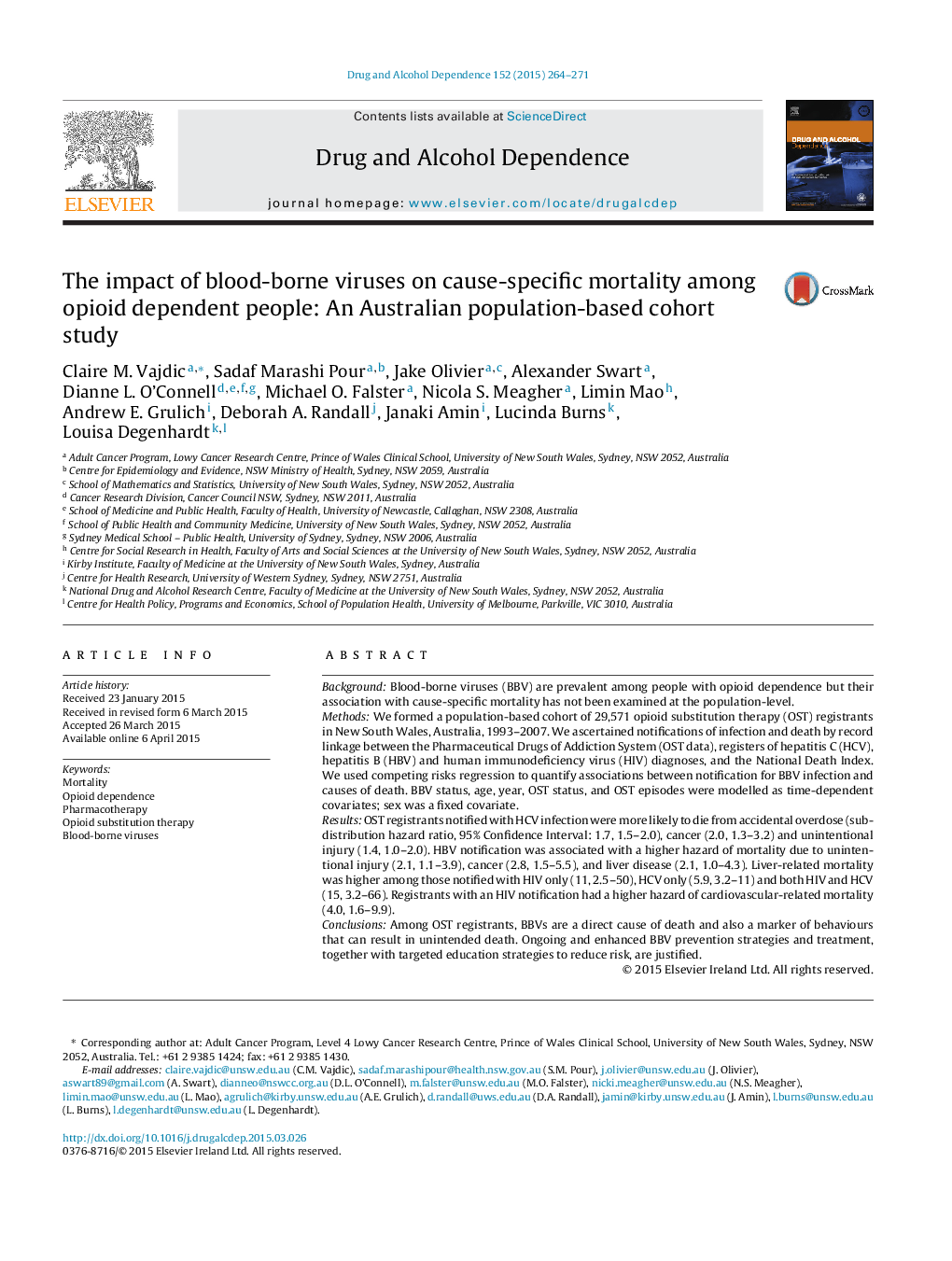| کد مقاله | کد نشریه | سال انتشار | مقاله انگلیسی | نسخه تمام متن |
|---|---|---|---|---|
| 1069796 | 1486139 | 2015 | 8 صفحه PDF | دانلود رایگان |
• Record linkage for population-based opioid substitution therapy (OST) registrants.
• Associations between blood-borne virus and cause-specific mortality examined.
• Hepatitis C increased mortality from liver disease, cancer, overdose and injury.
• Hepatitis B increased mortality from cancer, liver disease and injury.
• HIV increased mortality from liver and cardiovascular disease.
BackgroundBlood-borne viruses (BBV) are prevalent among people with opioid dependence but their association with cause-specific mortality has not been examined at the population-level.MethodsWe formed a population-based cohort of 29,571 opioid substitution therapy (OST) registrants in New South Wales, Australia, 1993–2007. We ascertained notifications of infection and death by record linkage between the Pharmaceutical Drugs of Addiction System (OST data), registers of hepatitis C (HCV), hepatitis B (HBV) and human immunodeficiency virus (HIV) diagnoses, and the National Death Index. We used competing risks regression to quantify associations between notification for BBV infection and causes of death. BBV status, age, year, OST status, and OST episodes were modelled as time-dependent covariates; sex was a fixed covariate.ResultsOST registrants notified with HCV infection were more likely to die from accidental overdose (subdistribution hazard ratio, 95% Confidence Interval: 1.7, 1.5–2.0), cancer (2.0, 1.3–3.2) and unintentional injury (1.4, 1.0–2.0). HBV notification was associated with a higher hazard of mortality due to unintentional injury (2.1, 1.1–3.9), cancer (2.8, 1.5–5.5), and liver disease (2.1, 1.0–4.3). Liver-related mortality was higher among those notified with HIV only (11, 2.5–50), HCV only (5.9, 3.2–11) and both HIV and HCV (15, 3.2–66). Registrants with an HIV notification had a higher hazard of cardiovascular-related mortality (4.0, 1.6–9.9).ConclusionsAmong OST registrants, BBVs are a direct cause of death and also a marker of behaviours that can result in unintended death. Ongoing and enhanced BBV prevention strategies and treatment, together with targeted education strategies to reduce risk, are justified.
Journal: Drug and Alcohol Dependence - Volume 152, 1 July 2015, Pages 264–271
